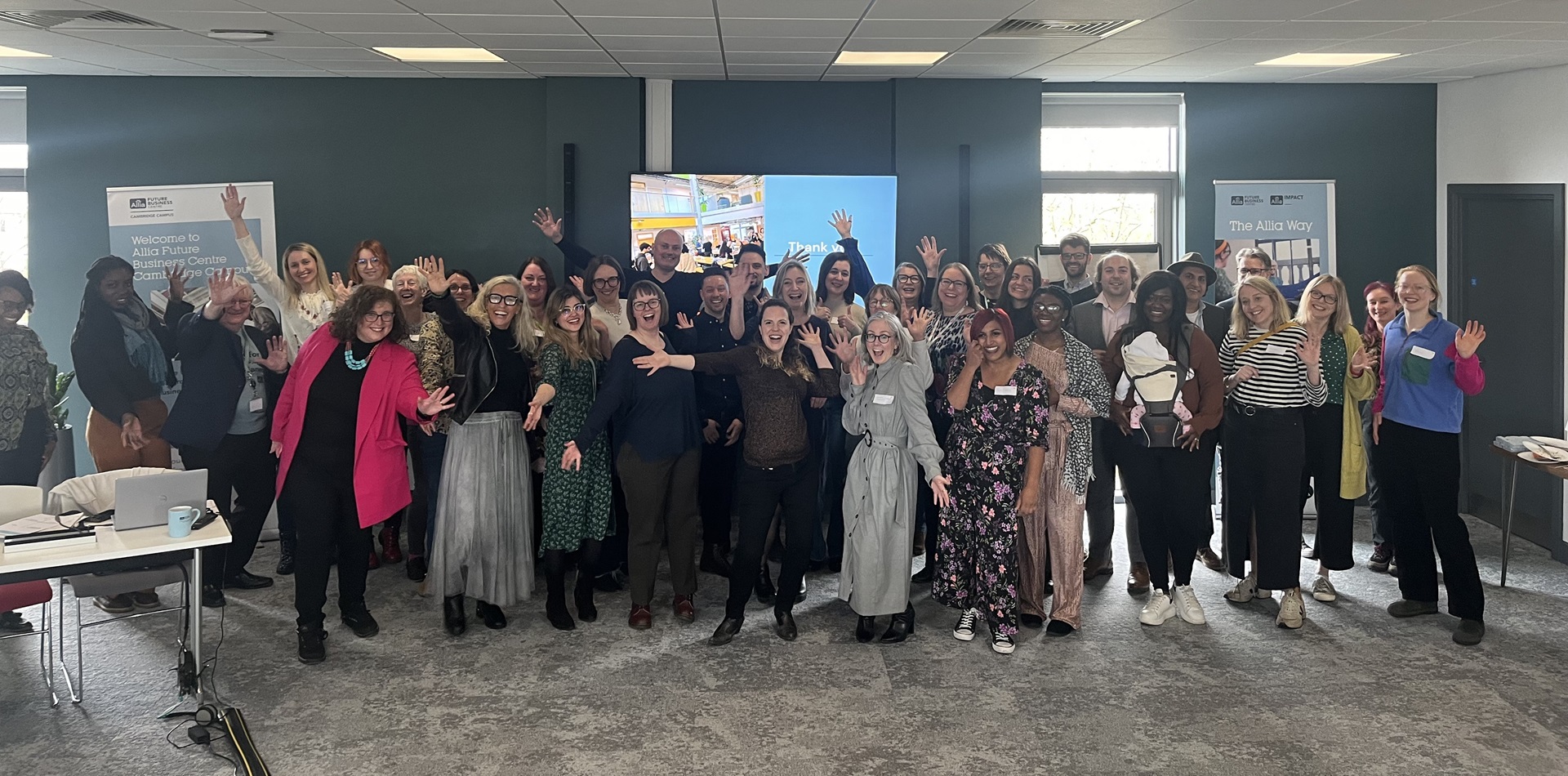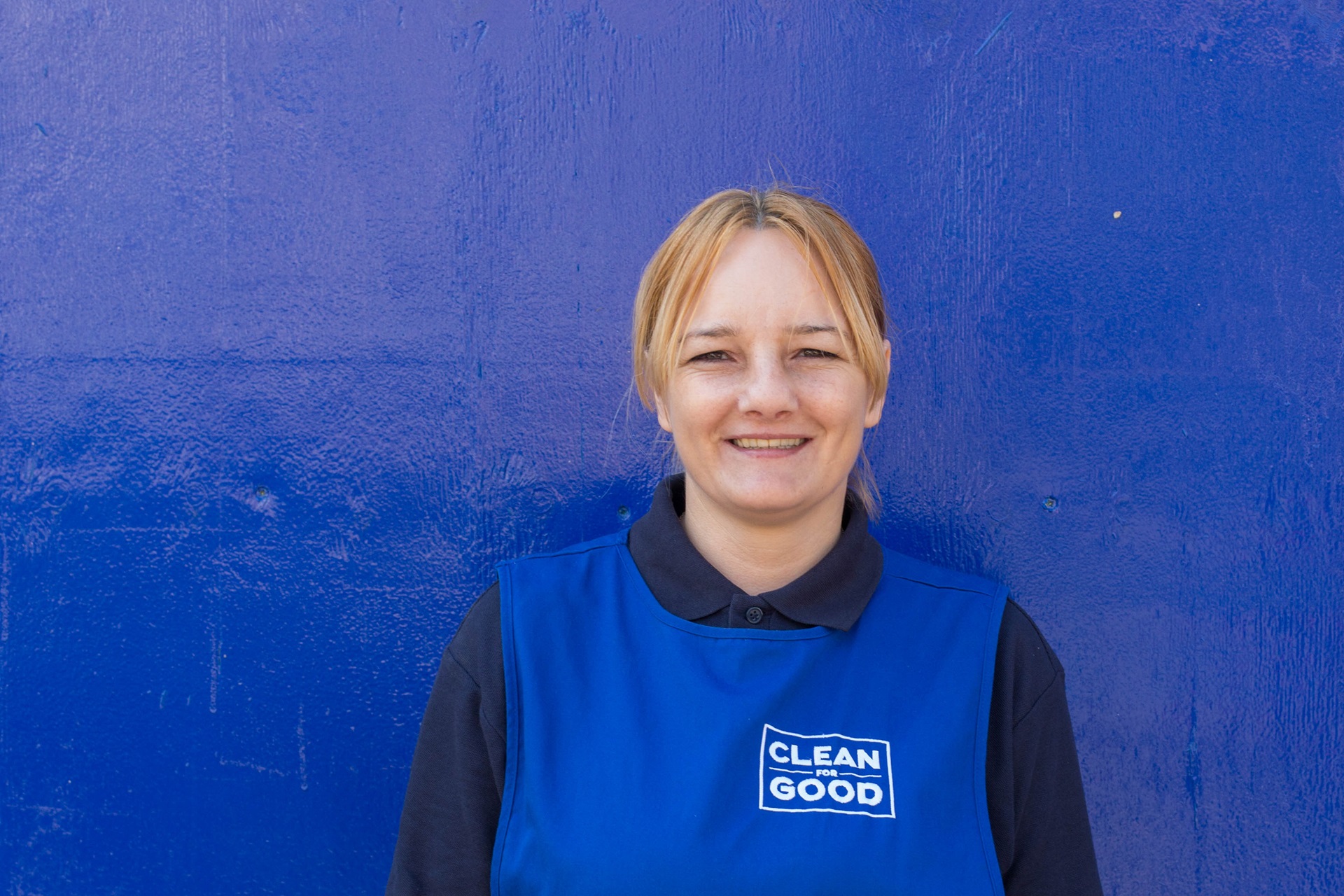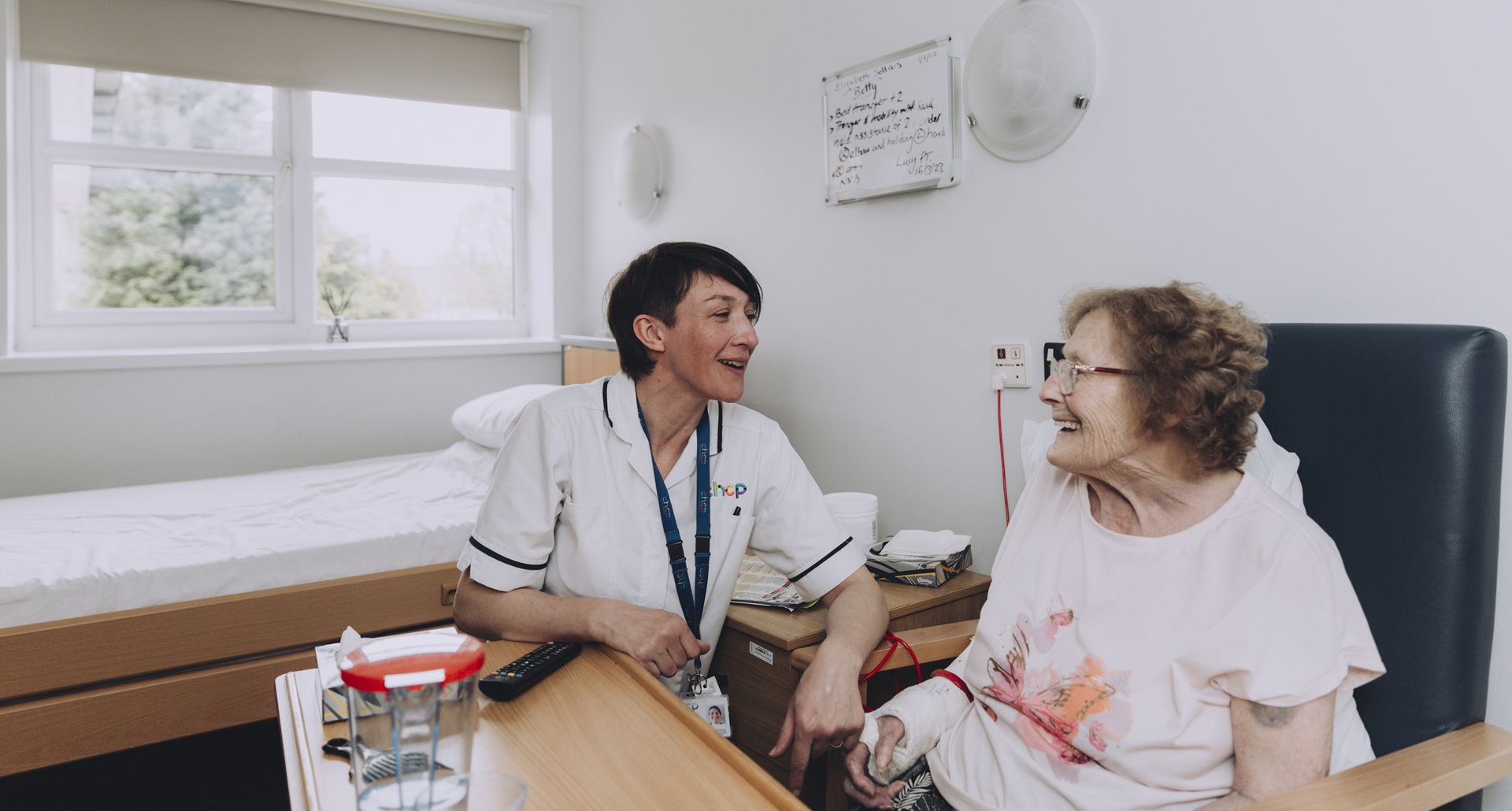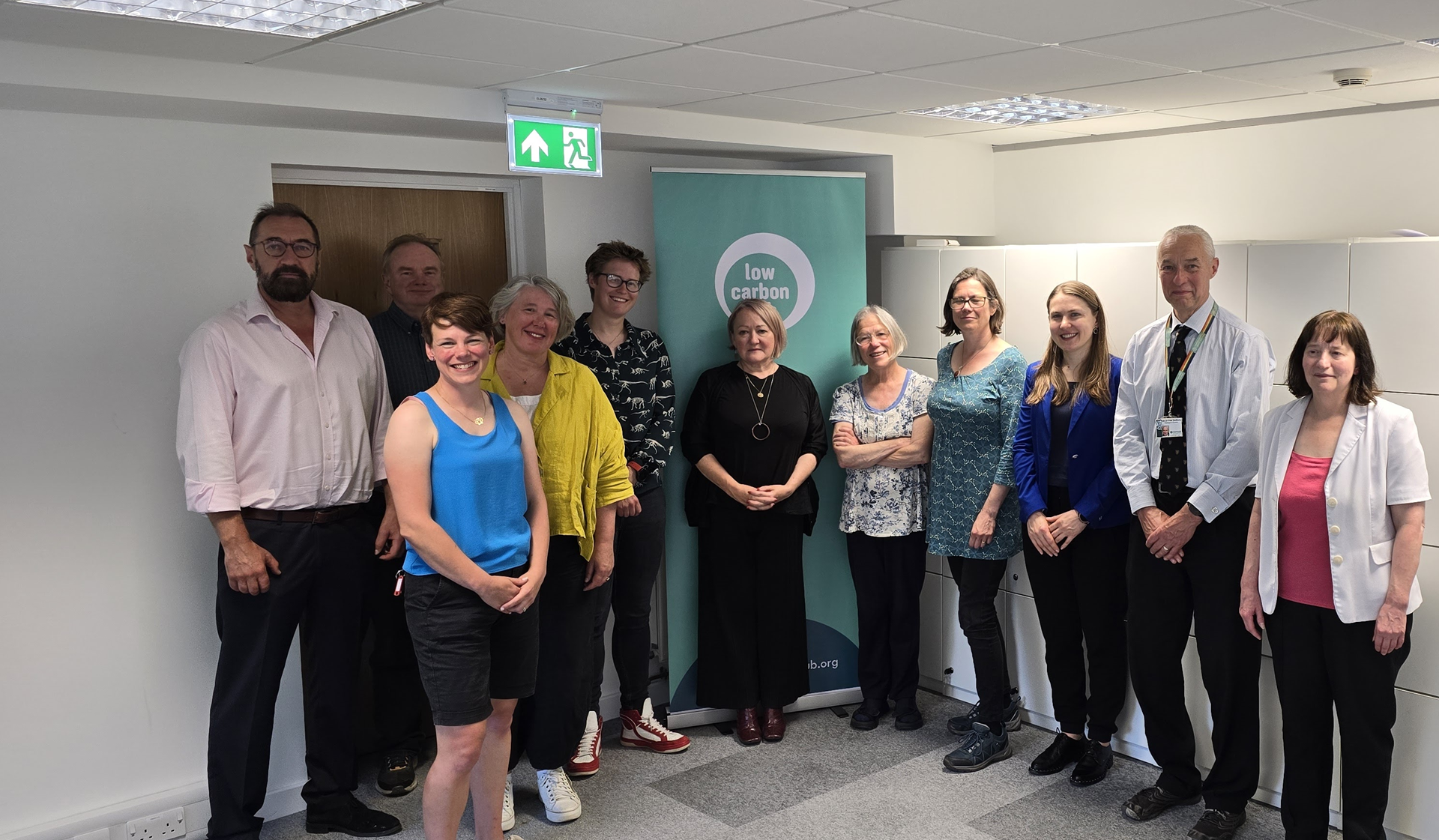
Member updates
Gail Porter and Fair for You launch new campaign to help six million Brits in furniture and appliance poverty
TV presenter and former model Gail Porter, who fought back from crippling bankruptcy and homelessness, speaks out on behalf of the 6 million Brits [1] living without an essential item like a washing machine or table to eat from. Gail Porter, Patron of the Fair Credit Charity which set up ethical lender and social enterprise, Fair for You says: “Six million people are living without household essentials right now, and many of those won’t have access to charity support or local council grants - nor do many want to use them. A helping hand from an ethical, not for profit lender like Fair for You can help them make their house a home. The alternative is living in deep deprivation, which I have experienced, or being burned by high-cost credit, or the exploitative tactics of illegal lenders.” New data released today [2] shows that around 9 million adults in Britain now have less than £250 in savings - making the upfront purchase of an essential appliance impossible (Fair4All Finance). The campaign aims to get more Brits to spread the cost of essential purchases with ethical lenders like Fair for You, who will only lend what people can afford, and provide customers with control over repayments. Gail Porter is also calling out banks for turning their backs on customers - even those who can afford to repay - because they don’t want to go to the trouble of making small loans. [3] She also feels that more retailers should be looking at their credit partners and considering whether they are offering options that are fair to hard-pressed consumers, saying: “The cost-of-living crisis has hit people hard, and I know that many people would be in serious hot water if they had to find a way to buy a new washing machine, fridge or other key appliance. I remember the horror of not being able to get a new washer when my young daughter was going to school - it wasn’t just the practical side of ensuring she wasn’t wearing dirty clothes, it was also the stress and the guilt I experienced, which put a huge pressure on my already dented self-esteem and mental health. “After what I went through, I know how hopeless things can feel when bills are piling up, but also how much of a boost it can give you - practically and mentally - when you find a helping hand. Fair for You and its retail partners are ensuring that there is a decent option out there for Brits who have nowhere to turn if they need to buy a new appliance or furniture - and we really want more companies to follow in their footsteps. We need to direct people away from illegal lenders who want to profit from misery.” Gail, a household TV and celebrity name in the 1990s, developed alopecia in 2005. The loss of her hair led to all her work drying up and coinciding with other personal issues, she went through the trauma of financial collapse and mental health issues. She has always been open about her well-documented difficulties during this period, and has become patron of the Fair Credit Charity to direct people to fair financial options. The Fair Credit Charity set up the ethical lender and social enterprise Fair for You in 2015. Fair for You enables people who aren’t being well served by banks and other mainstream lenders to buy household items including beds, washing machines, fridges and furniture with fair and flexible repayments. A range of leading retailers partner with Fair for You including Hotpoint, Argos and Iceland. Simon Dukes, chief executive of Fair for You, says: “The latest data from Fair4All Finance shows that 20.3m people are in financially vulnerable circumstances.(4) Around half of them are not able to save each month. This means there are millions of people with no financial safety net, who may feel they have no option in a moment of financial stress but to turn to high cost credit or illegal lenders. “We’re proud of the support we do provide, and we are supporting more and more customers all the time. Gail Porter is destigmatising the issue of financial exclusion by being so honest talking about her experiences of appliance poverty and just how distressing and hopeless it can feel without the right support.” Ian Moverley, Communication Director, Hotpoint says:"We don't believe anyone should worry about being able to put their kids in clean clothes or keep their food fresh. That's why we've been a proud partner of Fair for You since it first launched. Providing an affordable way for people to buy our household appliances means we can help alleviate the financial burden so many families are under. We're delighted that Gail is encouraging more brands to join us in offering similar ethical solutions that will make such a huge difference to so many lives." Claire Donovan, head of policy, research and campaigns at the End Furniture Poverty charity comments:“Our research highlights that there are at least six million people in the UK in furniture poverty, meaning they lack access to at least one vital household item, including appliances - and that at least one million are in what we call ‘deep furniture poverty’, meaning that there are three or more vital items they don’t have. The routes out of furniture poverty are becoming increasingly harder to navigate, so we welcome all sources of support.” References https://endfurniturepoverty.org/research-campaigns/understanding-furniture-poverty/ Fair4All Finance latest segmentation of people in financially vulnerable circumstances reveals that of the 20.3 million in financially vulnerable circumstances, 44% of these (8.93m adults) have no savings at all or less than £250 in savings. According to a Fair4All Finance report, only one major bank in Great Britain offers loans under £1,000. https://fair4allfinance.org.uk/nearly-half-of-uk-adults-now-living-in-financially-vulnerable-circumstances Photo credit: Getty Images/Fair for You About Fair for You Founded in 2015, Fair for You is an ethical lender and social enterprise, with a mission of helping financially-excluded families to buy essential household items, avoid hardship, and build their financial resilience. A registered community interest company (CIC) and owned by the Fair Credit Charity, Fair for You is backed by leading social investors. With more than 20m Britons struggling to access mainstream credit, and more than 10m having less than £100 in savings, there are families for whom an unexpected bill, or a fridge or washing machine breaking, spells disaster. Rather than go without fresh food or clean clothes, or having to go to the sort of predatory, for-profit, high-cost lenders which don’t have their welfare in mind, Fair for You is here to support them. Fair for You has a 4.8 out of 5 rating on Trustpilot, as well as a string of industry award wins. Since 2015, it has lent to more than 100,000 customers, and regular independent impact reports demonstrate far-reaching social benefits including better physical and mental health; improved education and wellbeing of children; and making it easier for adults to seek work or remain in employment. Fair for You runs affordability checks on all customers and uses open banking technology to enable it to lend better and collect better from those who may get rejected for loans elsewhere, due to poor credit ratings or thin credit files. Our growing range of retail partners - including Iceland, Argos, Dunelm, Whirlpool and Chemist Direct - are helping customers who may not have had access to their products without credit from Fair for You. The best-selling items through Fair for You include freezers, washing machines and children’s beds, with the average loan standing at £350. Fair for You is backed by Social Investment Scotland, Barrow Cadbury Trust, Esmée Fairbairn Foundation, The Tudor Trust, Joseph Rowntree Foundation, Carnegie Trust, FSE, The Robertson Trust, Ignite and Fair4All Finance.
6 min







